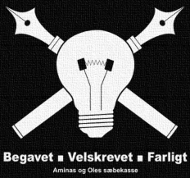Face it: The Pirate Bay will die once the Global Gaming Factory officially takes over.
The Pirate Bay lost its verdict because it is a site where users can register and upload torrents for, among others, pirated software and entertainment media. And let's not be hypocritical about this: why call it "The Pirate Bay" if it wasn't intended for pirates? The Pirate Bay didn't receive its verdict for hosting pirated files, but for providing a service that, unlike Google, was specifically designed to support file sharing, including pirated files.
There don't seem to be any particularly interesting alternatives available, because who wants to repeat the failure of the Pirate Bay founders, who were defeated by an amply aggressive music industry?
Well, maybe nobody has to.
It was The Pirate Bay itself, and secondarily its content of torrents, that was illegal. But what if one were to remove the entire Pirate Bay while still providing its service? It may not be as far-fetched, as it may sound.
If the music, the movies, and the software is already stored on each user's personal computer, why not store the torrents, or maybe a subset of them, on the users' computers, too? Is a single application (the torrent search engine) running on a single server (the pirate bay) really required? Why not distribute it all, including the torrent search engine?
Today's personal computers have network bandwidth, processing power, and disk storage enough to enable a distributed network, where each personal computer participates in indexing, searching, and sharing of torrents; the entire Pirate Bay consumed about 40 Gbytes of disk storage (including the torrents), so slowly building an index and a large number of torrents on a single computer is no impossible task at all. Once the distributed torrent searching and sharing challenge has been solved, torrents can be used as we always did—but without a single owner that can be sued and closed like The Pirate Bay. That is: as long as the author of the torrent search engine doesn't provide the software as closed source, like DVD Decrypter.
Someone else may come up with a better solution, and my suggestion may not even be heard. But otherwise, consider this my monkey wrench in the copyright machine.
The Pirate Bay lost its verdict because it is a site where users can register and upload torrents for, among others, pirated software and entertainment media. And let's not be hypocritical about this: why call it "The Pirate Bay" if it wasn't intended for pirates? The Pirate Bay didn't receive its verdict for hosting pirated files, but for providing a service that, unlike Google, was specifically designed to support file sharing, including pirated files.
There don't seem to be any particularly interesting alternatives available, because who wants to repeat the failure of the Pirate Bay founders, who were defeated by an amply aggressive music industry?
Well, maybe nobody has to.
It was The Pirate Bay itself, and secondarily its content of torrents, that was illegal. But what if one were to remove the entire Pirate Bay while still providing its service? It may not be as far-fetched, as it may sound.
If the music, the movies, and the software is already stored on each user's personal computer, why not store the torrents, or maybe a subset of them, on the users' computers, too? Is a single application (the torrent search engine) running on a single server (the pirate bay) really required? Why not distribute it all, including the torrent search engine?
Today's personal computers have network bandwidth, processing power, and disk storage enough to enable a distributed network, where each personal computer participates in indexing, searching, and sharing of torrents; the entire Pirate Bay consumed about 40 Gbytes of disk storage (including the torrents), so slowly building an index and a large number of torrents on a single computer is no impossible task at all. Once the distributed torrent searching and sharing challenge has been solved, torrents can be used as we always did—but without a single owner that can be sued and closed like The Pirate Bay. That is: as long as the author of the torrent search engine doesn't provide the software as closed source, like DVD Decrypter.
Someone else may come up with a better solution, and my suggestion may not even be heard. But otherwise, consider this my monkey wrench in the copyright machine.







That's all well and good. Now write it :-)
I'm more of an idea rat. I don't code anymore.
Look at this:
http://www.theregister.co.uk/2009/08/21/ggf_stock_halted_21_aug/
You can download the entire site, source code and torrents and all, in a 21GB tarball. Now, people could set up TPB on a Tor node, or on Freenet, or in some other variant of an encrypted, anonymous network.
It could also be done with HTTP-hosting-over-P2P, but then on would need to figure out how. HTTP-over-bittorrent, anyone? :-)